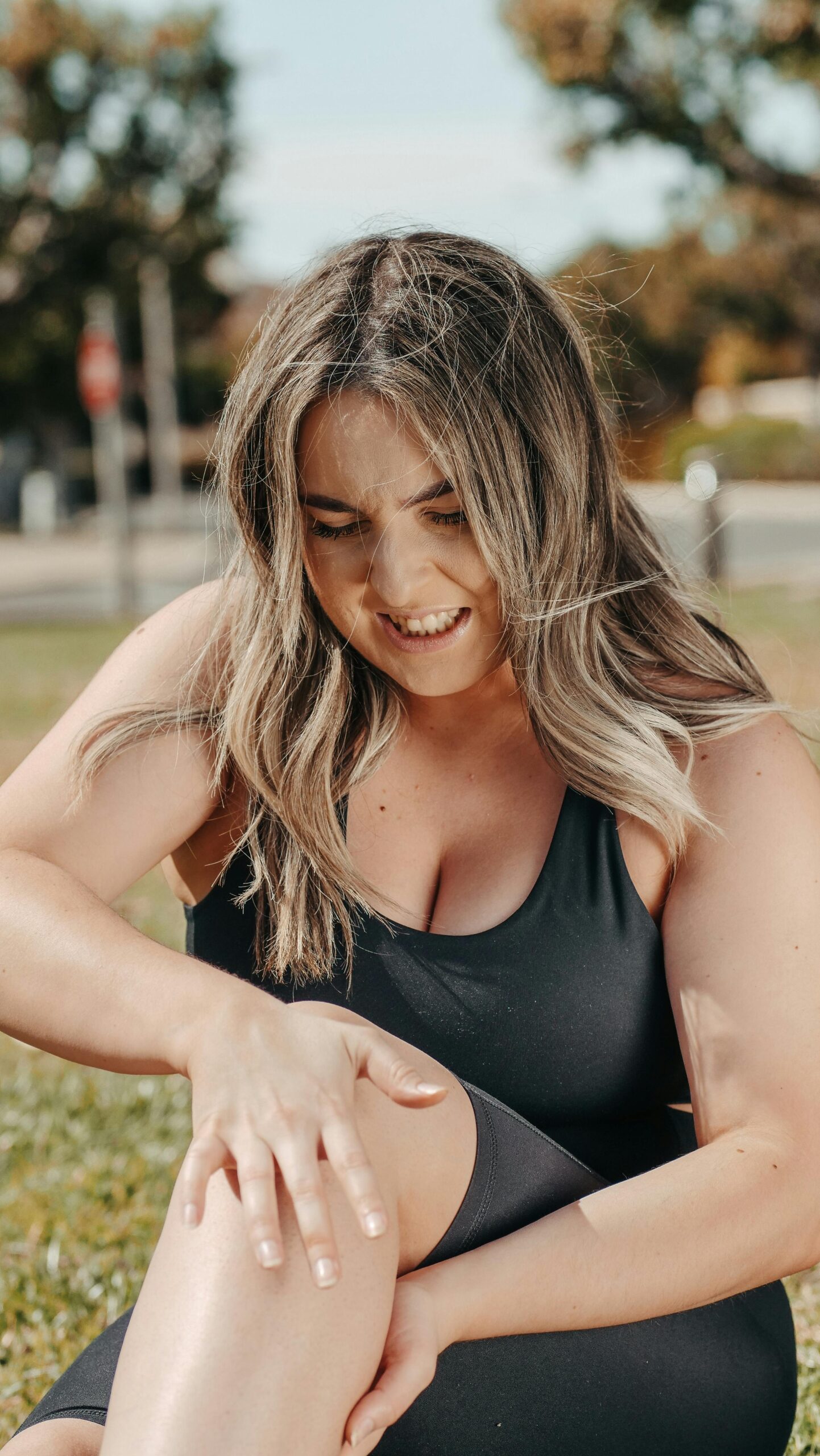Traumatic knee injuries are continuing to increase in Australia! The most common age range for this type of injury is 15-24 years of age and the average occurrence is 97.6 and 78.8 injuries per 100,000 people for males and females respectively. What is concerning is that poorly managed knee injuries can lead to a loss of function, decreased participation in meaningful activities such as sport, and may be associated with knee osteoarthritis in later life.
What Makes Up the Knee?
Firstly, we have our bones and stabilising structures of the knee including the ligaments and menisci.
The knee then has multiple muscles responsible for its function.
At the front of the leg, we have muscle groups including the quadriceps, adductors and the ankle dorsiflexors which all have attachments at the knee.
While at the back of the leg, we have the hamstrings and calf muscles which also have attachments at the knee.
Common Types of Knee Injury
Fractures
Fractures in the younger, athletic population will occur with high trauma forces. You often won’t be able to bear weight on this injury and may not be able to move the joint. If your physiotherapist suspects you have a fracture they will provide you with a referral to get an x-ray.
Infections
Infections can occur if you have underlying conditions and can be identified by severe pain, swelling, warmth and redness around the area. If you present with these signs, your physiotherapist will likely refer you to another health care professional for further management.
Patella Dislocations
Patella dislocations occur when the kneecap (patella) is forced from its trochlear groove. Often this injury tears the medial patellar retinaculum which plays a role in stabilising the patella. Paramedics will often reduce this injury on-site and you will likely begin your journey on crutches and in a Zimmer splint. This injury can be managed conservatively or surgically, with physiotherapy being essential to full recovery for both options.
Ligament Injuries
There are four major ligaments in the knee which provide stability to the joint. Sudden twists or excessive force on the knee joint can cause these ligaments to be torn with the ACL being the one most often injured. Ligament injuries need to be managed in specific braces and may require surgery. Physiotherapy is integral in the management of these injuries to ensure they are effectively rehabilitated and stability of the knee is restored.
Meniscal Injuries
The menisci increase stability, distribute load, absorb shock, and provide lubrication and nutrition to the knee joint. They can be torn or split via severe impact or twisting injuries, particularly in weight bearing activities. These types of injuries can cause catching and locking of the knee as well as pain. Meniscal injury management varies depending on age and function but will always involve guided physiotherapy to return to activity.
Muscular Strains and Tears
Strains or tears of the quadriceps, hamstrings or calf are common injuries that we see in our practice. Most strains will heal on their own however, physiotherapy can help speed up recovery, reduce pain and decrease the risk of reinjury.
Tendinopathy/Tendinitis
These may appear gradually in the knee with seemingly no cause. Often these are the persistent knee pains that never really seem to get better. To settle tendinopathy, a specifically tailored exercise program is required. Physiotherapists have a great understanding of how to optimally load a tendon to stimulate repair and reduce pain.
What Can I Do?
If you have knee pain book in with one of our physios today!
They will be able to assess your knee thoroughly; give you guidance if further investigations such as an MRI is required; and start you on a specifically tailored program to return you back to the activities you enjoy!



